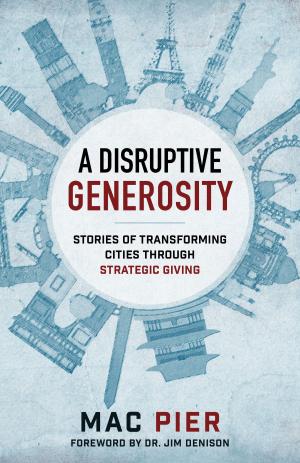One by One
Welcoming the Singles in Your Church
Nonfiction, Religion & Spirituality, Christianity, Church, Pastoral Ministry| Author: | Gina Dalfonzo | ISBN: | 9781493409280 |
| Publisher: | Baker Publishing Group | Publication: | June 20, 2017 |
| Imprint: | Baker Books | Language: | English |
| Author: | Gina Dalfonzo |
| ISBN: | 9781493409280 |
| Publisher: | Baker Publishing Group |
| Publication: | June 20, 2017 |
| Imprint: | Baker Books |
| Language: | English |
There are now more single adults than married adults in the United States, yet the evangelical church continues to focus primarily on serving couples and families with ministries geared toward their particular needs. This can lead, however unintentionally, to the marginalization of adults who are single by choice, divorce, or death, or who are simply not yet married. Families are a good thing, but so are all of God's people, and singles long to be lovingly integrated into the Body of Christ.
In One by One, Gina Dalfonzo explores common misconceptions and stereotypes about singles, including the idea that they must be single because something is wrong with them, and the subtle (and not-so-subtle) ways they are devalued, like when sermons focus overmuch on navigating marital relationships or raising children. She shows how the church of Paul, who commended those who remained single, became the church where singles are too often treated like second class Christians. Then she explores what the church is doing right, what unique services singles can offer the church, and, most importantly, what the church can do to love and support the singles in their midst.
There are now more single adults than married adults in the United States, yet the evangelical church continues to focus primarily on serving couples and families with ministries geared toward their particular needs. This can lead, however unintentionally, to the marginalization of adults who are single by choice, divorce, or death, or who are simply not yet married. Families are a good thing, but so are all of God's people, and singles long to be lovingly integrated into the Body of Christ.
In One by One, Gina Dalfonzo explores common misconceptions and stereotypes about singles, including the idea that they must be single because something is wrong with them, and the subtle (and not-so-subtle) ways they are devalued, like when sermons focus overmuch on navigating marital relationships or raising children. She shows how the church of Paul, who commended those who remained single, became the church where singles are too often treated like second class Christians. Then she explores what the church is doing right, what unique services singles can offer the church, and, most importantly, what the church can do to love and support the singles in their midst.















